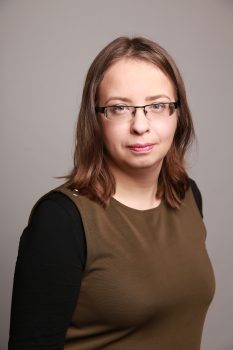Iveta Kazoka's prepared remarks prepared for the roundtable discussion on democracy in digital age
The roundtable took place on September 30, 2020. It was part of the agenda of the state visit to Latvia by the President of France Emmanuel Macron.
Participants of the roundtable:
Emmanuel Macron, President of France.
Egīls Levits, President of Latvia.
Jānis Sārts, Director of NATO Communications Centre of Excellence.
Ieva Morica, CEO of Open Society Foundation DOTS and Democracy festival LAMPA.
Iveta Kažoka, Director of Centre for Public Policy PROVIDUS
Natālija Knipše, Latvia’s UN Youth delegate.
The full recording of the event is available (where these remarks were presented in a shortened form) here.
Disinformation thrives when people feel insecure and disrespected. This toxic combination – insecurity, distrust – changes the answer to the most important social question in our societies: who should I trust?
It is by no means an easy question. It is hard both for democracies and for dictatorships. What is clear, though, is that sense of disrespect causes outrage that might lead to events that seemed impossible a moment ago.
We have seen it very clearly by our neighbours. It was the sense of outrage over government brutality that ignited the Ukrainian Revolution. It is the sense of outrage that brings people to protests in Russia and that motivates the people of Belarus to keep protesting about their stolen elections.
So the sense of outrage can be a force for good. But it is also a double-edged sword.
There is no such thing as a flawless democracy. There will always be someone who does not feel safe and respected. Targeted campaigns can provoke outrage, especially online. Eventually this can lead to the end of democratic institutions. This can also destroy Europe.
What is the remedy? In a democracy, an honest conversation – that is the remedy.
Living here in Latvia, we are in a better place than most. We are a small society with an egalitarian ethos, characteristic of other small societies in the Northern part of Europe. We all count on being part of the conversation and on being respected. That is why, when parliament went online because of Covid, there was no question of abandoning public engagement. Attendance in parliamentary committee meetings doubled and tripled in size.
The egalitarian ethos in our society is also the reason why elected representatives, ministers, even judges, engage in so many conversations with general public on Twitter and Facebook – sometimes these conversations are purely informative, sometimes they get heated, at times – it’s about having fun together. And it is this sense of everyone’s voice having a meaning that makes our parliament willing to receive electronic suggestions and to ponder collectively on the best means of turning these ideas into reality.
As citizens of Latvia, we expect to be heard and to be treated with respect. Nevertheless, still too many people feel insecure and disrespected. We are yet to find ways to involve people representing socially disadvantaged groups and those people whose Latvian language proficiency is limited.
That is why we look with much interest to our European friends and colleagues to see what they are doing to make discussions more inclusive. I was amazed by the scale and ambition of Le grand debat (Great debate) organized in France last year that involved thousands of meetings and millions of contributions collected from people. Even more inspiring was La Convention citoyenne pour le climat (Citizens’ Convention for the climate) where randomly selected citizens – representing different age groups, different regions, different professions – were entrusted to come up with their proposals to limit climate change.
These examples illustrate that trust is a two-way process. Contemporary democracy requires not only that people trust their institutions, but also that the representatives of institutions trust and respect the people.
This might sound obvious, but it is not. In a way, it requires a leap of faith. You have to believe that non-experts will manage get to the core of a complicated social issue, deliberate on in constructively, and then come up with well-considered suggestions. It’s hard to believe, but that is exactly what happens.
If there is an underlying trust in the wisdom of the people, if the procedures are not too tightly controlled, if people are given time to deliberate, everything works out. Not only will people get to the core of a complex social problem, but they will also manage to reach compromises that would be hard to imagine in traditional politics. Our democratic institutions are sometimes not ambitious enough: they have outdated preconceptions of what is possible!
That is why we have very high expectations for the Conference on the Future of Europe. It is very important that this conversation on the future of Europe is open to every European who wants to engage. Even more so – we should especially try to engage those who feel too insecure, too disillusioned or too disrespected to consider being part of the process.
Europeans need a respectful and honest conversation – a conversation without predefined boundaries – where we could discuss our current problems and where we could dream big about the common future. It is much easier to feel safe about the future if we ourselves have built its vision.
Respectful conversation that builds trust and a sense of security – there is no better way to boost our collective immunity against disinformation. In the long term, it is also the most appropriate solution to threats to democracy in the digital age.
